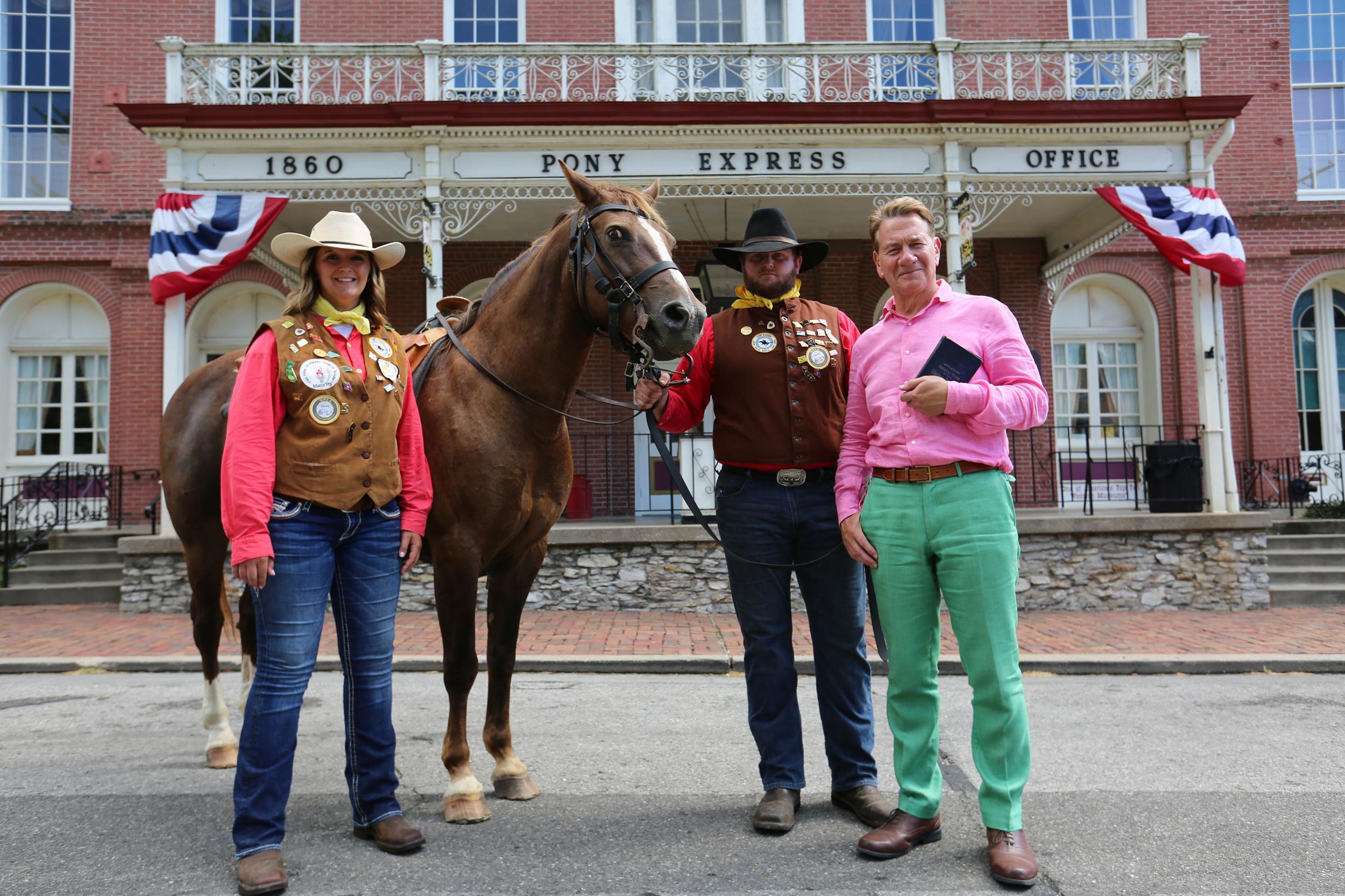Last nights TV: Great American Railroad Journeys (BBC2), Further Back in Time for Dinner (BBC2)
How does Michael Portillo get away with those outfits?

Michael Portillo’s new series Great American Railroad Journeys follows many other adventures on the right and wrong side of tracks we’ve seen him in since he gave up politics for good. Judging by the first couple of episodes of the new run, and indeed on the track record of the past, the show might be more accurately entitled “Michael Portillo’s Great Sartorial Journeys”. Last night we saw the former Conservative Defence Secretary resplendent in pink shirt and aquamarine trews; Monday evening’s debut was performed in pink slacks and an emerald green blazer. There are many variations on those sorts of violently clashing and flamboyant themes.
I’ve been trying to find the right word for Mr Portillo’s mode of locomotion, that is when he isn’t on a train, boat or horse-drawn wagon, now that he’s made it out to the Wild West. “Walk” is too mundane a word, and it certainly isn’t brisk enough to qualify as a march. On the other hand it is way too steady and purposeful to qualify as a stagger or a meander. The peculiar Portillo gait lies equidistant between a saunter and a stroll, and it suits him, and the American Mid-West, very well.
Basically this series is a travelogue of many of the less well-visited and overlooked corners of the United Sates, which nonetheless can boast food and drink, curiosities, engineering and, above all, landscapes every bit as grand and charming as those more familiarly found on the coasts of Florida or Chicago, the usual destinations for British visitors. Thus, the state capital of Missouri, Jefferson City, houses some grand gardens, and impressive state legislature, a gigantic hewn state penitentiary, and a pleasant small-town America feel. Down the track in Hermann, well, that’s still full of Germans, descendants of settlers who turned up in the nineteenth century because the land reminded them of the Rhineland, and who set about making “corn cob” pipes, some apparently fine wines and massive Bratwurst, a fine specimen of which was proudly brandished by Mr Portillo to camera. Nowadays Mr Portillo enjoys as easy and relaxed a demeanour as he was tense and edgy when a politician. Once upon a time his biographer, a young journalist named Michael Gove, called his portrait of young Thatcherite hope “The Future of the Right”. Nearly right, then. Mr Portillo in 2017 really does seem liberated from all that nonsense, and good for him.
The Robshaw family continue to make their time traveller-like journey through social history and, particularly, the cuisine of the British during the last century. Now they’ve been suitably bustled and frock-coated and deposited in a smallish villa in Tooting, to hang out in the Edwardian era. A few things stood out. First, just how hide-bound and snobby Edwardian society really was. So keen were the Edwardians on showing off that they’d allow virtually anyone into their homes. The Robshaws, cast as aspirational lower middle class types that never really got used to having their very own servant. They just had the one, mind – this isn’t Downton – a “Maid of all Work”. And all the work she certainly did, including being tasked with having to prepare single-handedly an eight course banquet for eight people. That was for a dinner party, an exercise in early twentieth century social climbing, and a feature of British life that has proved all-too enduring.
More puzzlingly, we saw how well the Edwardians ate, at least those with a little money. Whereas nowadays we spend on average a tenth of our income on food, back then it was a third, and the vast majority of it was spent on meat and poultry. Virtually everything was eaten, and in large quantities, accompanied often as not by bread – 24 loaves a week for the typical family. In one popular cook book there were no less than 22 recipes for grains. Gluten free was a concept unknown in the 1900s, and I’m not sure that the current fashion for “clean eating” is much more sensible than the Edwardians’ mania for offal.
Subscribe to Independent Premium to bookmark this article
Want to bookmark your favourite articles and stories to read or reference later? Start your Independent Premium subscription today.

Join our commenting forum
Join thought-provoking conversations, follow other Independent readers and see their replies